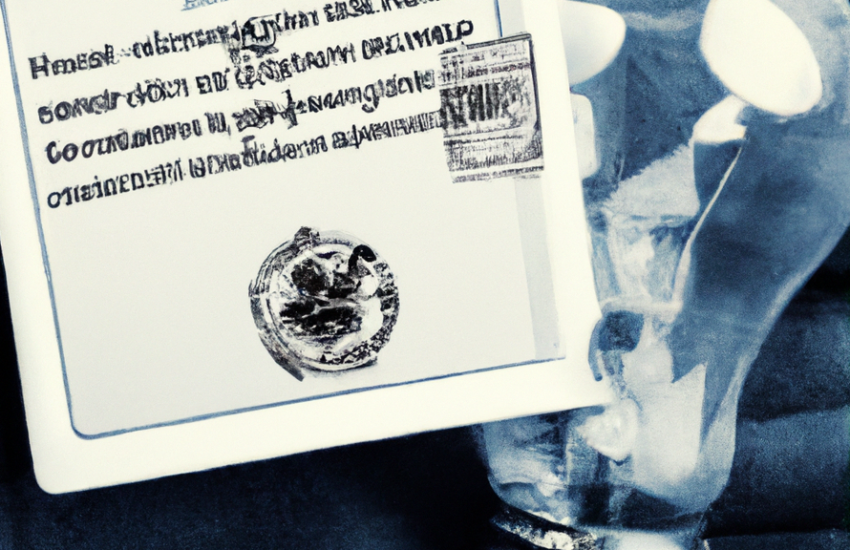THE ETHICS OF PATENT TROLLS: HOW TO PROTECT YOUR INVENTION FROM UNSCRUPULOUS ENTITIES
Innovation is the cornerstone of progress, and inventors are the driving force behind it. However, the road to success is not always smooth, and unscrupulous entities known as patent trolls can pose a significant threat to inventors. Patent trolls are individuals or companies that acquire patents solely for the purpose of suing others for infringement, rather than using them to create or improve products. This practice not only stifles innovation but also drains resources and time from inventors.
In this blog post, we will explore the ethics of patent trolls and provide practical tips on how to protect your invention from these entities. Whether you have a groundbreaking invention idea or a product design, understanding the risks and taking proactive measures can help you safeguard your intellectual property and ensure that your hard work pays off. So, let’s dive in and learn how to navigate the complex world of patent trolls.
THE ETHICS OF PATENT TROLLS: HOW TO PROTECT YOUR INVENTION FROM UNSCRUPULOUS ENTITIES
Innovation is the lifeblood of progress. It is the driving force behind the creation of new products, services, and technologies that make our lives easier, more efficient, and more enjoyable. However, the process of innovation is not without its challenges. One of the biggest challenges facing inventors today is the threat of patent trolls.
Patent trolls are entities that acquire patents for the sole purpose of suing other companies for infringement. They do not produce any products or services themselves, but instead, they use their patents as a weapon to extract money from other companies.
Patent trolls are often seen as unscrupulous entities that exploit the patent system for their own gain. In this article, we will explore the ethics of patent trolls and provide some tips on how to protect your invention from these entities.
The Ethics of Patent Trolls
The term “patent troll” is often used pejoratively to describe entities that acquire patents solely for the purpose of suing other companies for infringement. These entities are often seen as unscrupulous and unethical because they do not produce any products or services themselves.
Instead, they use their patents as a weapon to extract money from other companies.
One of the main ethical issues with patent trolls is that they often target small businesses and startups that do not have the resources to fight back. These companies may be forced to settle with the patent troll, even if they believe that they are not infringing on the patent. This can be devastating for small businesses, as the cost of settling with a patent troll can be significant.
Another ethical issue with patent trolls is that they often acquire patents that are overly broad or vague. This makes it difficult for other companies to know whether they are infringing on the patent or not. In some cases, patent trolls may even acquire patents for inventions that they did not invent themselves. This can be seen as a form of intellectual property theft, as the patent troll is essentially claiming ownership of an invention that they did not create.
Finally, patent trolls are often seen as a drain on innovation.
Instead of using their patents to create new products or services, they use them to extract money from other companies. This can discourage innovation, as companies may be hesitant to invest in new technologies if they fear that they will be sued for infringement.
How to Protect Your Invention from Patent Trolls
If you have invented a new product or technology, it is important to take steps to protect your invention from patent trolls. Here are some tips on how to do so:
Conduct a Patent Search
Before you begin the process of patenting your invention, it is important to conduct a patent search to ensure that your invention is not already patented. This can help you avoid infringing on someone else’s patent and can also help you identify potential patent trolls that may be targeting your invention.
File for a Patent
Once you have conducted a patent search and determined that your invention is not already patented, you should file for a patent. This will give you legal protection for your invention and can help deter patent trolls from targeting your invention.
Be Specific in Your Patent Application
When filing for a patent, it is important to be as specific as possible in your patent application. This can help prevent patent trolls from acquiring overly broad or vague patents that could be used to target your invention.
Monitor Patent Applications
It is also important to monitor patent applications to ensure that no one else is attempting to patent an invention that is similar to yours. This can help you identify potential patent trolls and take steps to protect your invention.
Be Prepared to Defend Your Patent
If a patent troll does target your invention, it is important to be prepared to defend your patent. This may involve hiring a lawyer and going to court to fight the patent troll. While this can be expensive, it is often necessary to protect your invention and your business.
Conclusion
Innovation is essential for progress, but it is not without its challenges. Patent trolls are one of the biggest challenges facing inventors today. These entities acquire patents for the sole purpose of suing other companies for infringement, and they are often seen as unscrupulous and unethical. To protect your invention from patent trolls, it is important to conduct a patent search, file for a patent, be specific in your patent application, monitor patent applications, and be prepared to defend your patent. By taking these steps, you can help ensure that your invention is protected and that you can continue to innovate without fear of being targeted by patent trolls.
- Taking on Patent Trolls to Protect American Innovation | whitehouse …
Jun 4, 2013 … Our patent system — as enshrined in our Constitution — is meant to encourage innovation and invention. It was designed to reward Americans … - Patent troll – Wikipedia
Related expressions are “non-practising entity” (NPE) (defined as “a patent owner who does not manufacture or use the patented invention, but rather than … - What is a Patent Troll? – HG.org
Most have a sense, probably from the name, that a patent troll is bad, … protection for their inventions in order to keep companies from stealing their … - Chapter 19.350 RCW: PATENT INFRINGEMENT—BAD FAITH …
Through this legislation, the legislature seeks to protect Washington’s economy from abusive and bad faith assertions of patent infringement, … - Grassley Statement at Judiciary Hearing on The Impact of Abusive …
Mar 18, 2015 … Patent trolls, however, are entities that engage in abusive and … of the American tradition of opportunity, invention and innovation. - How Small Businesses Can Protect Themselves from Patent Trolls …
Patent trolls may also be known as NPEs or Non-Practicing Entities. If you own a small business, you may think that big bad patent trolls won’t notice you. - AG Ferguson files lawsuit against “patent troll” targeting small …
May 14, 2021 … First-ever enforcement of the AG-request Patent Troll Prevention Act … violated the Patent Troll Protection Act, which prohibits bad faith … - The Great Patent Troll Debate – Two Perspectives | Stout
Terms such as patent trolls, non-practicing entities (NPEs), or patent assertion entities (PAEs), have been used by many in the litigation community to … - Beware the patent troll | LegalZoom
Patent trolls make money by buying and attempting to enforce patents, but there are ways to protect yourself. - Patent Trolls: Friend or Foe?
Earlier this year, the Republic of Korea modified its laws to protect local technology companies from NPEs who had sued a major technology firm there …
Fun facts about The Ethics of Patent Trolls: How to Protect Your Invention from Unscrupulous Entities
- The first patent law was enacted in Venice, Italy in 1474.
- Thomas Edison held over 1,000 patents during his lifetime.
- The Wright brothers’ airplane patent sparked a legal battle that lasted for years.
- In the United States, patents are granted by the U.S Patent and Trademark Office (USPTO).
- Patents can be granted for inventions or discoveries that are new, useful and non-obvious.
- A provisional patent application can provide temporary protection while an inventor develops their invention further before filing a full application.
- Patent infringement lawsuits can be costly and time-consuming for both parties involved.
- Some companies use “defensive” patents to protect themselves from potential litigation rather than using them to actively pursue infringers of their own intellectual property rights

Are you ready to become an inventor?
Getting your idea out of your head and into your hands is only the first in a long set of steps towards becoming a successful inventor.

First Steps To A Successful Invention
At Invention Therapy, we believe that the power of the internet makes it easier than you think to turn your invention idea into a reality. In most cases, you can build a prototype and start manufacturing a product on your own. Changing your way of thinking can be difficult. Being an inventor requires you to balance your passion with the reality of having to sell your products for a profit. After all, if we can't make a profit, we won't be able to keep the lights on and continue to invent more amazing things!Please subscribe to our Youtube Channel!




